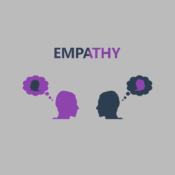Originally written by Scott Howard Swain in 2016. Based on his book, the “A Practical EmPath” system, and NVC.
Who started it?
Let’s show children awareness of the price we all pay when choice is not present. I’d love to see a reduction in exceptions to “you don’t force people to do stuff” across the board. I’m thinking about kids but it happens to all ages. We tell kids it is wrong to initiate force, yet we control every detail of their lives. I see a thousand ways parents can reduce this hypocrisy by picking less battles, offering more choices, encouraging kids to do more on their own, and allowing NATURAL CONSEQUENCES to teach them their lessons. For those times when you see no way other than force, at least let them know you would prefer another way and empathize with how frustrating it must feel to be controlled so often.
Most people skip empathy, jumping straight to evaluation, fixing, assisting, distraction, reward, and punishment. To be clear: when I say empathy, I mean responses like, “Wow you did it!” and “Hmmm seems like you are having difficulty with that.” and “Seems like you are really disappointed.” and “Ouch I bet that hurts.” and “Did you want more consideration?” and “Sounds like you wish someone would do that for you?” and “Is it a little scary when you think about doing that thing all by yourself?” and “When you hear it is time to go, are you frustrated because you would love to keep playing?”
Important note: empathizing out loud does not mean we give in. It merely shows them we get them, their perspective is valid, and we respect them.
To zoom in on one thing I said above: Rewards. Yeah, duh “positive reinforcement” is a thing. But maybe that is for animal training. Guess what? Do you want your kid to grow up to be a people-pleaser, motivated and controlled by other people and desire for material acquisition, i.e., external factors? That is what you are asking for when you rely on use of the reward/punishment paradigm.
What is the alternative? How about a person who grows up confident in their internal compass, caring about others for deeper reasons than wanting to impress them and/or to get something from them (because THEY were treated with empathy while growing up)? How about a person who is motivated to succeed and be powerful because it feels good inside?
“You did it, lil Susie! How does that feel? Why? How do you think this new skill will help you in the future?” vs “You did it, Susie! I’m so proud of you! Here is a reward.” Save that for dogs.
Want more? Check out these articles
NOTE: The above articles are in queue to be moved to this site, so please excuse the mess.
Some books I recommend on this topic
Nonviolent Communication by Marshall Rosenberg
the “A Practical EmPath” system by Scott Howard Swain (read chapter by chapter excerpts here)
Easy To Love, Difficult to Discipline: The 7 Basic Skills for Turning Conflict by Becky Bailey
Conscious Discipline: 7 Basic Skills for Brain Smart Classroom Management by Becky Bailey
Everything Voluntary from Politics to Parenting by Skyler Collins
Punished by Rewards by Alfie Kohn
How Children Learn by John Holt











Recent Comments